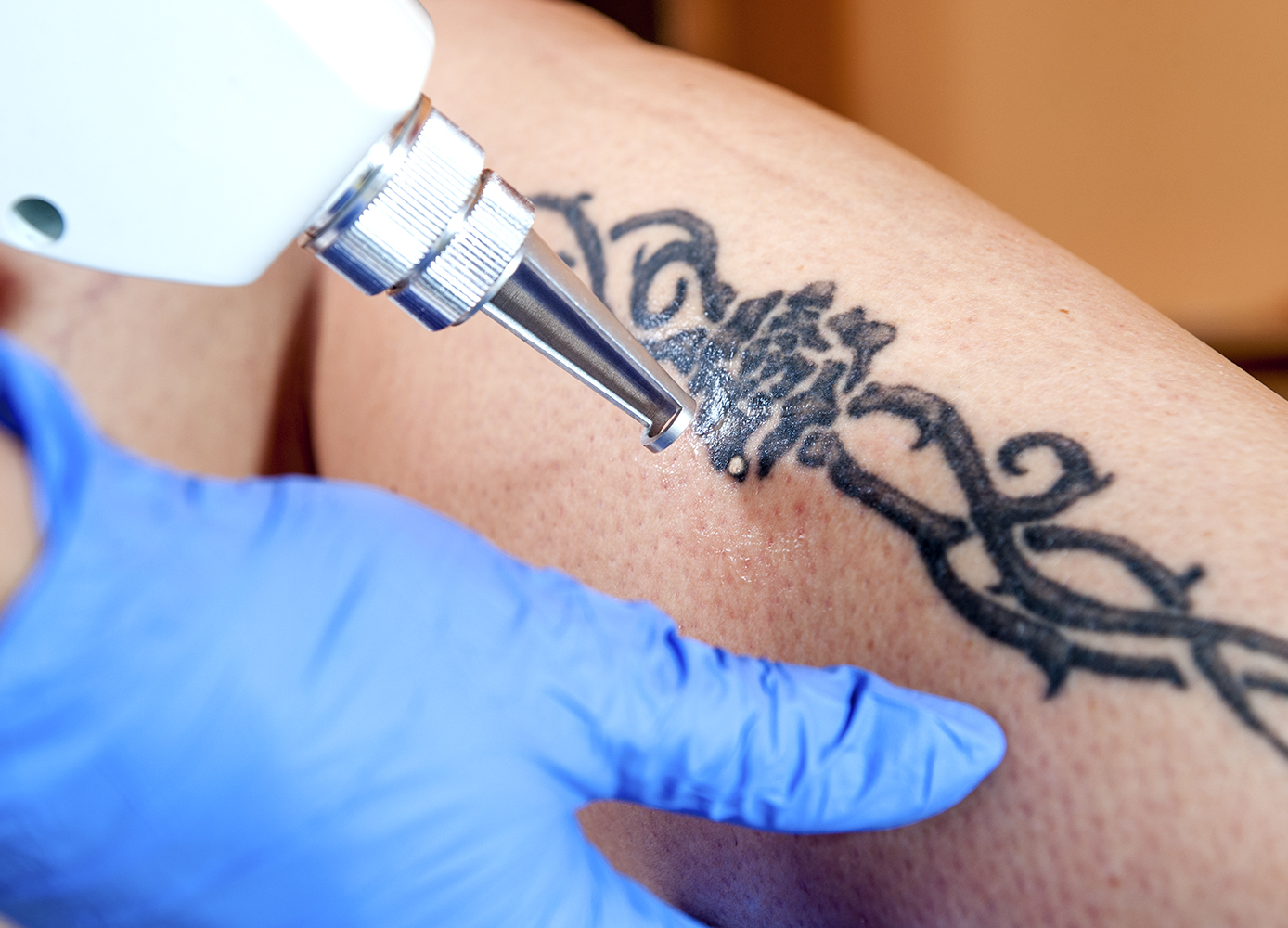Want to get rid of that tattoo you got years ago? You can—but it’s not quick, easy, or cheap
By Katrina Caruso
In the last few years, the tattooing market has exploded, with tattoo artists gaining millions of followers on Instagram. Though there’s still something of a stigma on the millenia-old practice, tattoos are much more mainstream and accepted these days. Sometimes, though, people get tattoos that they regret.
Many artists are skilled at covering those unwanted pieces up with new work, if that’s the route you wish to take. However, it’s also possible to have a tattoo removed by a qualified dermatologist, plastic surgeon, or technician using laser technology.
How much does it cost?
Prices vary widely, with some tattoo removal clinics offering sessions starting at around $75 per visit, but that figure can be as a high as $500 per visit—or more. The price depends on the clinic, the doctor, the city you’re in, and the type of tattoo (size, ink colour, body location, age of tattoo, and other factors).
How many sessions does it take?
Most tattoos will require at least five to eight sessions, but sometimes a tattoo can call for as many as 20 procedures; the number depends on the type of laser being used and the tattoo being removed. Newer technologies can reduce the number of sessions needed. Black and blue inks are typically the easiest colours to remove, with reds, yellows, and greens being more difficult. Sessions last between 10 to 30 minutes.
Will it hurt?
Most often, the pain is about the same or less than that involved in getting the tattoo, numbing creams can help ease the pain. Local anaesthetic may also be used. The treatment may cause some swelling, bruising, blistering, or crusting, but with the application of an ointment and bandages, these symptoms should subside.
What are the risks?
The risks include scarring and the lightening or darkening of the skin where the tattoo once was. The best way to avoid these risks is to seek treatment from a qualified dermatologist or a doctor trained in the use of a laser. Avoiding sun exposure after treatments can also prevent scarring and pigmentation problems.
Final Considerations
You should speak with a physician or dermatologist (most offer consultations for free) to get a full idea of the time and cost involved.
Photo: iStock/damiangretka.




